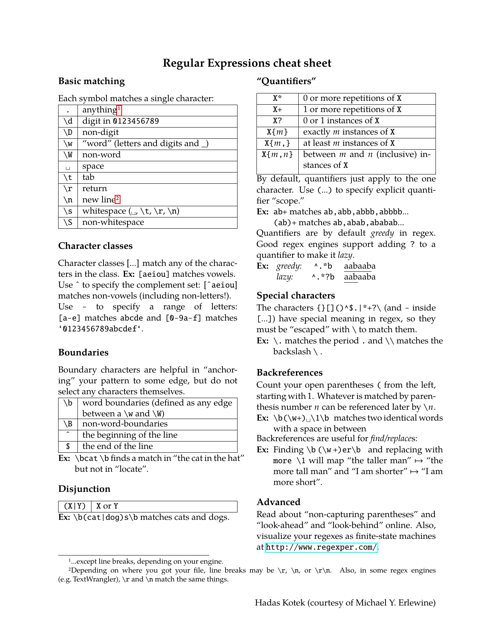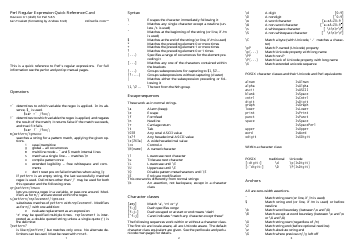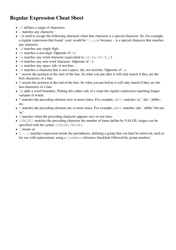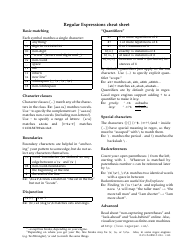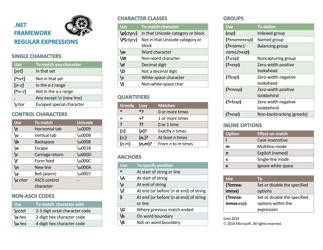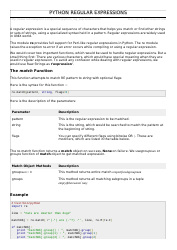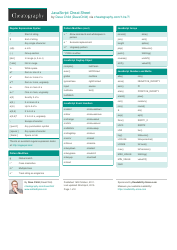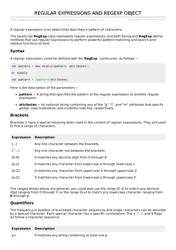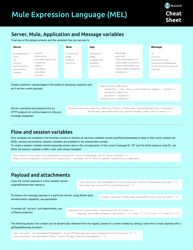Regular Expressions Cheat Sheet - Hadas Kotek
The Regular Expressions Cheat Sheet by Hadas Kotek is a handy reference guide that provides a quick overview and examples of regular expressions. Regular expressions are patterns used in computer programming to match and manipulate text. The cheat sheet helps programmers understand and use regular expressions effectively in their code.
FAQ
Q: What is a regular expression?
A: A regular expression is a sequence of characters that forms a search pattern.
Q: What are the main uses of regular expressions?
A: Regular expressions are used for matching/searching patterns in strings and for manipulating and validating text.
Q: How can regular expressions be used to search for patterns in strings?
A: Regular expressions can be used with various programming languages/tools (like Python, JavaScript, grep) to search for specific patterns in text.
Q: What are the common metacharacters used in regular expressions?
A: Some common metacharacters used in regular expressions include . (dot), * (asterisk), + (plus), [] (character class), and () (grouping).
Q: What is the purpose of metacharacter . (dot) in a regular expression?
A: The dot metacharacter matches any single character except newline characters.
Q: What does the asterisk (*) metacharacter do in a regular expression?
A: The asterisk metacharacter matches zero or more occurrences of the preceding character.
Q: What does the plus (+) metacharacter do in a regular expression?
A: The plus metacharacter matches one or more occurrences of the preceding character.
Q: How is a character class defined in a regular expression?
A: A character class is defined using square brackets [] and it matches any one character within the brackets.
Q: What is the purpose of grouping in a regular expression?
A: Grouping in a regular expression is used to group subpatterns together and apply a quantifier to the entire group.
Q: Can regular expressions be case-sensitive?
A: Regular expressions can be both case-sensitive or case-insensitive, depending on the programming language or tool used.
